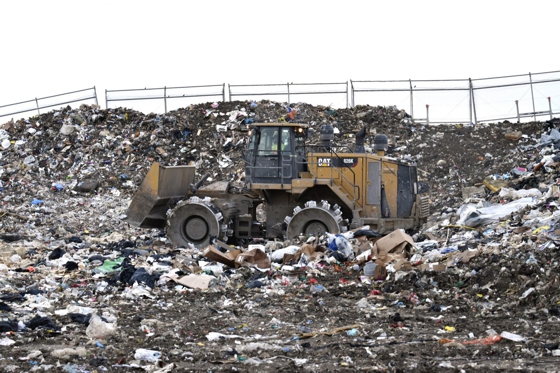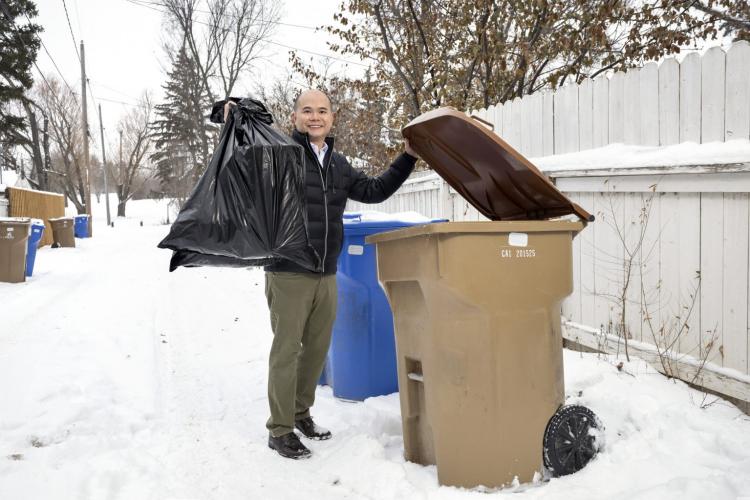
The City of Regina Landfill. Photo: The City of Regina
Even beyond its health impacts, the COVID-19 pandemic has caused major upheavals in our daily lives. Schools shut down and students were sent home. Many offices asked employees to work remotely. And we were all cleaning more and masking up to cut down on the spread of the virus.
But what impact have these changes had on the amount of garbage we are throwing away? Are we generating less solid waste since mid-March, more, or about the same? And what about the composition of all that trash?

U of R environmental engineer Kelvin Ng has partnered with the City of Regina to develop a waste prediction model over the remaining waves of the COVID-19 pandemic. Photo by Trevor Hopkin
Kelvin Tsun Wai Ng, a professor in environmental systems engineering at the U of R, figures there are lessons to be learned from what we are sending to the landfill. With support from an NSERC Alliance Grant, Ng and his colleague Golam Kabir, an assistant professor in industrial systems engineering, have teamed up with the City of Regina to develop a model for predicting the amount of waste likely to be generated over the remaining waves of the current pandemic. The model will also help with planning for other catastrophic events down the road.
While there are plenty of models out there for estimating waste volume based on such factors as population and economic activity, if successful, this would be the first for projecting a pandemic's impact on trash.
Shayne Tracey, senior engineer with Regina's Water, Waste & Environment department, says the City was keen to partner, as they are interested in how the pandemic will affect quantities of waste coming into the landfill, and how that could impact their costs and revenue. "We also wanted to see how this type of situation would affect staff, their working hours, and the landfill's hours of operation."
TRACKING TRASH
Using City of Regina data on waste disposal rates for 2018, 2019, and 2020, Ng is establishing a baseline amount that takes into account seasonal variation. (Spoiler alert: overall rates are down for 2020, but household rates are up.) Then he'll be analyzing data on COVID case counts from other countries to see how the virus behaved elsewhere. For example, did other places experience a single peak or were there multiple waves?
By mapping the number of active cases of COVID in Regina against the amount of additional waste generated at the corresponding points in time, Ng will get a picture of the impact locally. Then he'll build scenarios to predict what our local trash totals will be, depending on whether the virus spreads as it has in Brazil, Sweden, and the U.S. "So if we have, for example, 10 active cases, we can expect to see X amount of added solid waste," explains Ng. "Using whatever country scenario, we can then better predict our solid waste generation during a pandemic."
THE REGINA MODEL
Ng is confident the project will yield a model the City of Regina can use to better plan and manage its landfill operations. Equally important, though, the collaboration will advance the knowledge base in this field and provide a methodology that can be used and built upon elsewhere.
"I really hope that different groups of researchers in different places can use what we've done to build similar models, and, in the end, we can compare and combine model predictions, giving us, for example, a Regina model, a Toronto model, a New York model," says Ng. "By working together, we may be able to create a more robust waste generation model that captures the essence of the problem."















